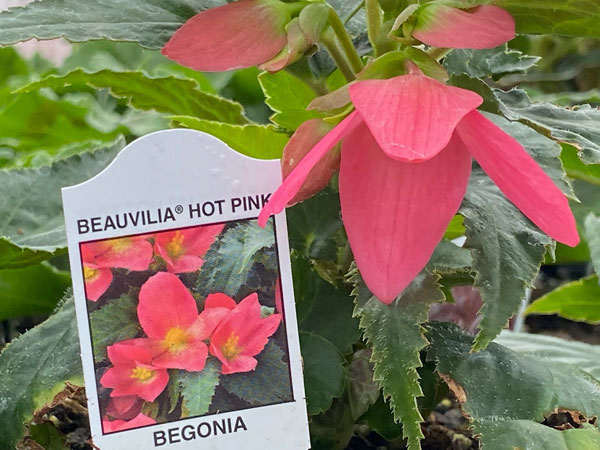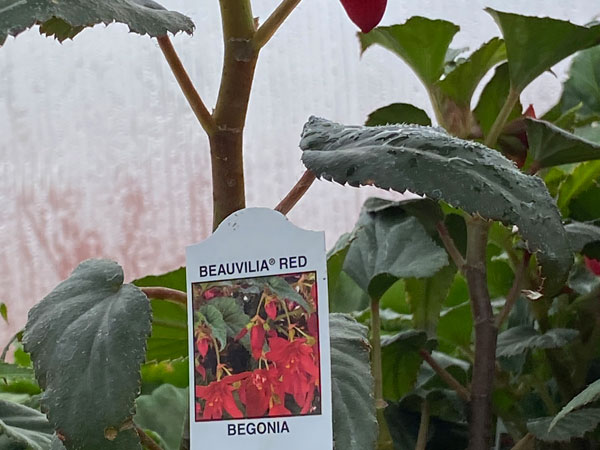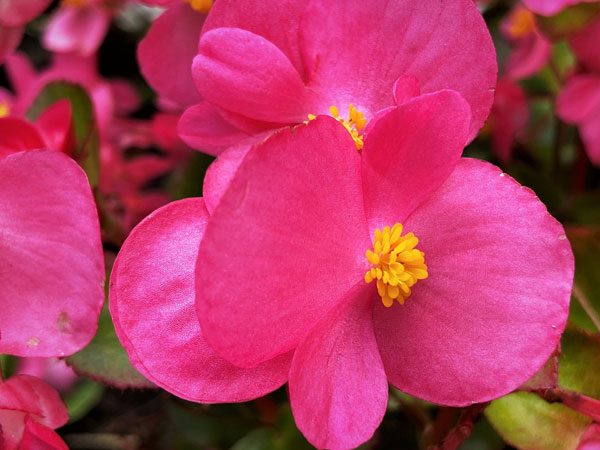Begonia
Begonia is a genus of perennial flowering plants that belongs to the family Begoniaceae. It is a large and diverse genus that includes more than 1,800 species of plants that vary in size, shape, and color. Begonias are native to tropical and subtropical regions of the world, including Central and South America, Africa, and Asia. These plants are popular ornamental plants, grown for their beautiful and colorful flowers and foliage.
Begonias are known for their unique foliage and flowers, which come in a variety of colors, shapes, and sizes. The leaves of the begonia plant are typically asymmetrical and have a shiny texture. They can be green, red, pink, or silver, and some species have variegated leaves with patterns of white or silver. Begonia flowers are also quite distinctive and can be found in a range of colors, including white, pink, red, orange, and yellow. Some species produce double or ruffled flowers that are particularly striking.



Begonias are popular indoor and outdoor plants and are commonly grown in containers, hanging baskets, and as bedding plants. They are often used to add color and interest to gardens, patios, and balconies. Begonias prefer well-drained soil and partial shade, and they thrive in warm and humid conditions. They are easy to care for and require regular watering and fertilization.
There are many different types of begonias, each with their unique characteristics and growing requirements. Some of the most popular types of begonias include:
- Tuberous begonias: These begonias have large, showy flowers and are often grown in containers or hanging baskets.
- Rex begonias: These begonias are grown for their colorful and patterned foliage, which can be quite striking.
- Angel wing begonias: These begonias have long, pointed leaves that resemble the wings of an angel.
- Wax begonias: These begonias are often used as bedding plants and are known for their compact growth and long-lasting blooms.
- Fibrous begonias: These begonias are often used as houseplants and are known for their small, delicate flowers and compact growth.
Begonias have a long history of cultivation and have been grown for their beauty and ornamental value for centuries. They were first introduced to Europe in the 17th century and quickly became popular with gardeners and plant enthusiasts. Today, begonias are still one of the most popular ornamental plants and are grown and enjoyed by people all over the world.
In addition to their ornamental value, begonias are also used in traditional medicine and have been used to treat a variety of ailments, including stomach problems, skin conditions, and respiratory issues. Some species of begonias are also edible and are used in cooking in certain parts of the world.
In conclusion, begonias are beautiful and versatile plants that are prized for their unique foliage and flowers. They are easy to care for and are a popular choice for both indoor and outdoor gardens. With their wide range of colors, shapes, and sizes, there is a begonia variety to suit every taste and growing condition. Whether grown for their ornamental value or their medicinal properties, begonias are a truly remarkable genus of plants.